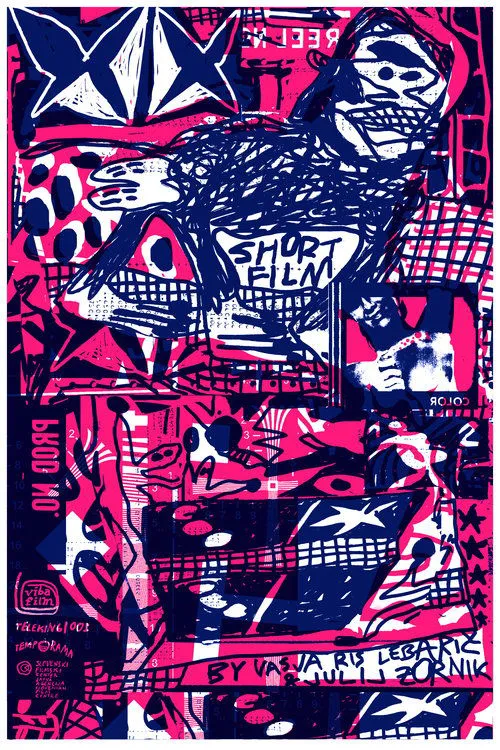Unveiling the Unseen: The Radical Genesis of Chris Delforce’s XX
In an era saturated with formulaic narratives, a groundbreaking animated film titled XX has emerged from the visionary mind of Australian filmmaker Chris Delforce, challenging the very fabric of storytelling itself. Far from a conventional production, XX is a testament to cinematic experimentation, born not from a rigid script but from an audacious embrace of intuition, chance, and the inherent unpredictability of the creative process.

Behind the abstract, enigmatic sequences lies Delforce’s profound desire to dismantle traditional narrative structures in animation. His ambition wasn’t simply to tell a different story, but to tell a story differently – allowing the very act of creation to dictate the course of the film.
A Vision Forged in Coincidence
At the heart of XX’s radical departure is Delforce’s fascination with coincidence. Unlike most filmmakers who meticulously plan every beat and frame, Delforce consciously invited serendipity into the production workflow. The narrative of XX didn’t spring from a pre-written screenplay; instead, it evolved organically, shaped by unexpected juxtapositions and moments of pure chance that arose during the filmmaking process itself. This unique approach meant that the film’s “story” wasn’t something to be discovered and adapted, but something that was actively being created by the very act of its making.
This production philosophy blurs the lines between art creation and its consumption. Delforce, in essence, became less of an author dictating a fixed plot and more of a conductor orchestrating a symphony of unfolding coincidences. It’s a bold artistic statement, asserting that some of the most profound truths can emerge from the untamed wild of artistic impulse rather than through charted territory.
The Unscripted Canvas: A Revolutionary Production Process
Producing XX meant rejecting the established norms of animation pipelines. There were no traditional storyboards meticulously detailing every scene; no locked-down dialogue scripts guiding character interactions. Instead, the team (likely small, given the experimental nature) had to navigate an unscripted terrain, guided by Delforce’s evolving intuition and the inherent unpredictability of the visual elements as they came to life.
This rejection of linearity wasn’t merely an aesthetic choice; it was a fundamental shift in methodology. Each frame of XX became an immediate response to the preceding one, a spontaneous birth from the material at hand. This demanded an unparalleled level of adaptability and a willingness to surrender control, fostering an environment where accidents could be celebrated as opportunities rather than dreaded as mistakes. The film’s non-traditional structure, often heightening a sense of disorientation for viewers, is a direct reflection of this unrestrictive and fluid production ethos.
Blurring Lines: Filmmaker, Film, and Spectator
Delforce’s singular approach to XX intentionally blurs the classical distinctions between authorship and art. In the conventional filmmaking model, the director is the definitive author. However, in XX, Delforce posits that the creator’s role is far more ambiguous. As the film progresses, the undeniable influence of chance and the interplay between the evolving visual input and the filmmaker’s moment-to-moment decisions become apparent, inviting audiences to ponder their own place within this shifting tapestry.
The “behind-the-scenes” of XX isn’t about revealing elaborate sets or technological marvels; it’s about understanding a philosophical framework applied to film production. It’s an exploration of how a filmmaker can consciously step back, allowing the very act of creation, with all its inherent unpredictability, to guide the narrative. By embracing the unstructured and the unforeseen, Delforce crafts an experience where artistry transcends the confinement of scripted narratives, leaving viewers to grapple with the complex relationship between chaotic chance and the human creative impulse.
Ultimately, XX is far more than just an animated film; it’s a testament to the evolving spirit of filmmaking. Chris Delforce’s work stands as an audacious challenge to conventional storytelling, leading both the audience and, perhaps, even the filmmaker himself, on an uncharted journey into the realm of the unknown, asking profound questions about what filmmaking can be and how stories truly come to life.